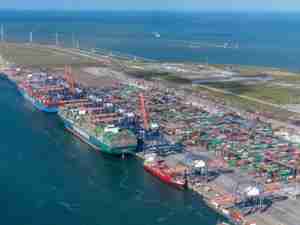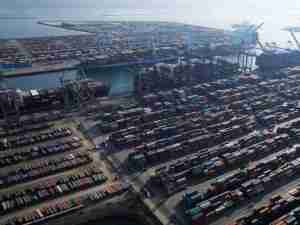Currently foreign companies must have a local partner to start an industry in the United Arab Emirates. "There will be a dual operating mode, a mix of 100 percent foreign ownership and joint ventures. It will be based on the strategic importance to Abu Dhabi's GDP," Khaled Salmeen, executive vice president of Industrial Zones at ADPC told reporters.
The entire financing for the industrial zone and port is by the Abu Dhabi government, ADPC's chief executive said. ADPC is the master developer and regulator of the ports and industrial zones.
Oil-rich Abu Dhabi, capital of the United Arab Emirates, is investing billions of dollars in industry, tourism, infrastructure and real estate to diversify its economy away from oil.
KIZAD is expected to contribute some 15 percent of Abu Dhabi's non-oil GDP by 2030, said Salmeen, adding that about 60 to 80 percent of goods manufactured in the zone will be exported.
Strategic industries that are likely to be part of the zone are those in sectors such as aluminium, steel, petrochemicals, food, pharmaceuticals and others, said Tony Douglas, CEO of ADPC. The second phase of the industrial zone will start in 2013, he said, without elaborating.
When the Khalifa Port's first phase becomes operational in 2012, it will have capacity of 2 million containers and 9 million tones of cargo a year, four times higher than existing capacity at Abu Dhabi's main Mina Zayed port. "There have already been significant expressions of interest from all over. We will be flexible and dynamic to adapt to investors coming into the zone," said vice president Salmeen.
Some 150,000 jobs will be created by 2030 there, he added. (Reuters)










